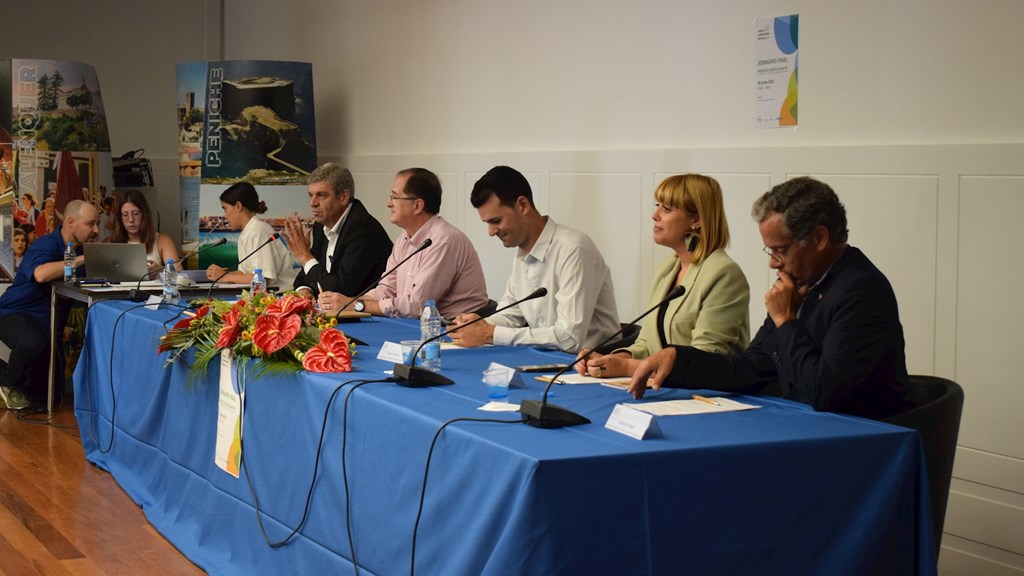The event took place in Intermunicipal Community of the West, Caldas da Rainha, and had more than 50 participants.
The event was opened by Paulo Simões, Executive Secretary of OesteCIM, followed by a coffee break.
Susana Escária, from the General Secretariat for the Environment, virtually present at the session, greeted those present and mentioned that, once the Plans have been drawn up, it is important to implement concrete measures to adapt to climate change.
The Environment Programme has already supported 60 projects. The closure of the Oeste Adapta Project is “another relevant contribution to reducing economic and social disparities in the European Economic Area and strengthening bilateral relations between beneficiary countries and donor countries.”
Luís Carvalho, from the Center for Urban Regional Studies and Development, took stock of the Project. Climate change is reflected in the increase in the average annual temperature, in the increase in the number of days of heat waves, in the decrease in precipitation and in the rise in the average sea level.
The Deputy Director of Center for Urban Regional Studies and Development mentioned the objectives and components of the Project, carried out over 24 months of work, which involved planning, training and awareness-raising components.
Future challenges include implementing the planned adaptation actions by 2030, having an evidence-based, transparent and scrutinized policy, intensifying community awareness, integrating adaptation into municipal policies, especially in urban planning, preserving the role of ecosystems in providing regulatory services and revise/update the plan for an advance planning process.
This was followed by a debate on the urgencies and challenges of climate adaptation in the West, moderated by Gonçalo Caetano (Center for Urban Regional Studies and Development), which included Hermínio Rodrigues, Mayor of Alcobaça, António Vidigal, Secretary of the Presidency and Council of the Municipality of Caldas da Rainha, João Serra, Alderman of the Municipality of Lourinhã and Dulcineia Ramos, Alderman of the Municipality of Torres Vedras.
In a markedly rural region, the main concerns are related to the lack of water, heat waves and drought, but also to the conservation of the cliffs, the safety of people and goods, rising seas and floods.
It is important to train/educate, raise awareness and adapt land use planning instruments, namely through an inter-municipal collaborative network to work together and face extreme events.
Present at the session, Carlo Aall, representative of the Norwegian Partner Western Norway Research Institute, spoke about the Norwegian experience, namely the next phase of conventional adaptation to climate change, transboundary risks, types of environmental problems, the disconnect between the discourse of adaptation and mitigation to climate change and the need to reconnect the currently divided climate discourses.
At the end of the session, Ellen Aabø, Chargé d'Affaires at the Embassy of Norway in Portugal, mentioned the importance of investments in climate adaptation in the short and medium term, giving the example of the commitment of the Norwegian State to sustainable energy production and consumption solutions. In her words “the Project is over, but this is where the work begins”.
At the end of the Seminar, all Municipal Technicians involved in the Project received the respective Certificate.
